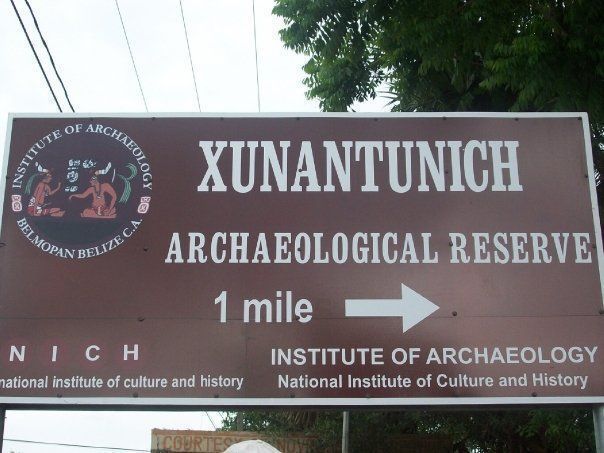Family Travel Forum's tips on traveling safe 'n' sound, plus securing your vacation investment in a changing world.Family Travel Forum's tips on traveling safe 'n' sound, plus securing your vacation investment in a changing world.
With the current climate of uncertainty caused by the global economic turmoil, hotel bombings in Mumbai, pirate attacks off the coast of Africa, and ongoing terrorist incidents in Gaza, London, Madrid, Egypt, Thailand and Syria — not to mention the Iraq War — we feel compelled to offer some comfort to international family travelers.
1. Regarding world events and global health issues, we urge caution and common sense.
2. Regarding the volatile economy, we urge protecting your vacation investment.
3. Regarding concerns about new terrorist acts, we urge flexibility in planning.
Why Vacation Prices & Airfares Vary So Widely
Do you recall when the so-called "perfect storm" (war, SARS, terrorism) of spring 2003 forced travel companies to use cheap packages to Europe, Asia and several Caribbean islands to lure reluctant families? By 2005 — other than in hurricane-devastated regions — those fears and those days had ended and air fares (squeezed by smaller planes, fewer routes, yet more traffic) and hotel rates (demand was up) were higher than ever.
In the years since, the average cost of leisure travel has risen nearly 10% per year — except in places where fresh hurricanes or terrorism forced the destination to lower rates to lure travelers. By early 2008 fuel prices were the culprit in steadily rising rates for planes, trains and automobiles, but the global recession that hit in the third quarter of the year prompted travel companies to begin discounting again.
The 2009-2010 economic crisis is felling tourist destinations like dominoes. Within this chaos is opportunity, as willing travelers find an upsurge in the number of wildly discounted family vacations, guided tours, and cruises around the world. Keep in mind that even if you're not reading about "sales," you should look at the fine print in travel offers, and tally up the added value being given away by companies eager for your business. Especiallly for the luxury traveler, 2009 is the year to go anywhere in high style, as long as you're prepared.
Smart Planning in Tough Times
What's a parent to do? Are you going to let a recent hurricane or hotel attack get in the way of your exotic family vacation? Before making any plans, you should discuss the above issues with your fellow travelers (as age-appropriate) and decide how much "excitement" your family has the appetite for. Once your family has reached a comfortable consensus, take precautions, protect your investment and maximize the flexibility of your plans.
Taking Precautions: Stay Informed
The first precaution is to stay informed — avoid the hotspots where civil unrest, anti-American sentiment or terrorist sympathizers are likely to cause trouble. While industry experts used to feel exotic destinations like China and Botswana were safe, in our interconnected world, a nuclear showdown with North Korea, flare up in Darfur, or another airport incident in Africa may make the whole region off limits. In this era of instant communications, families can visit cybercafes or travel with international cellphones (their own or rental units) at nominal charge, to keep up with current events.
Despite past accusations that the State Department uses a politically motivated system of classifying threats to Americans going abroad, it makes sense for citizens of any country to check in at their website for the latest destination safety news. The State Department encourages all travelers to be aware of local events and take the appropriate steps to bolster their personal security in their brochure "A Safe Trip Abroad" found online at http://travel.state.gov. This is the website to check for country by country and regional Travel Alerts, Travel Warnings and Travel Advisories which are posted in response to current conditions at destinations around the world. In addition, U.S. travelers may obtain up-to-date information on security conditions by calling 888/407-4747 in the U.S. or 202/501-4444 from anywhere outside the country.
Great Britain's Foreign and Commonwealth Office also offers current travel advice, and it's the Wall Street Journal's pick for the most straightforward security information regarding Middle East events and the current world crisis.
Some vacation locations are considered more dangerous at different times of the year. Know, for instance, which spots are most likely to be hit by a hurricane during hurricane season. According to rankings by HurricaneCity, some of the cities and islands most likely to be affected by tropical storms include Grand Cayman Islands; Cape Hatteras, NC; Abaco Island and Grand Bahamas Island, Bahamas, Cancun, Mexico; Grand Isle, Louisiana and Delray Beach, Florida.
Taking Precautions: Protect Your Investment
The second precaution is to protect your investment. Travel insurance ensures reimbursement for costs incurred by the cancellation or early termination of your planned itinerary, due to illness, world events, local occurrences or many other reasons. We recommend purchasing a comprehensive plan including trip cancellation, trip interruption and the standard coverage for lost baggage, medical evacuation, etc. from an independent insurer, perhaps the company that carries your homeowner or auto insurance policies.
Avoid buying policies offered by a self-insured cruise or tour operator: if they go out of business, there may not be any money to reimburse you!
Note that many insurance companies have very fine print limiting their liability in case of terrorism or war, which may exclude you from the coverage you need. Although most travel insurance policies carry medical evacuation coverage (flying the sick traveler and family to a place with better medical care), this won't help you if an illness such as SARS or Novel H1N1 is the suspected cause. During both crises, airlines refused to carry patients diagnosed with the illness, and many countries quarantined suspected carriers upon arrival.
Before purchasing your travel package, call an insurance agent directly and ask specific "What if?" questions to determine the best choice for your needs.
Taking Precautions: Travel Prepared
As a general safety precaution, before hitting the road, families should make several photocopies of their passports, ID and credit cards so they can leave a set behind and carry an extra one. Parents should have copies of their children's birth certificates and a photo of each child; custodial adults should have Permission to Travel Letters and Emergency Medical Treatment Authorization in writing from the children's parents (read more about these documents here), including all health insurance policy information.
Be sure each child in your party carries contact information for an adult, as well as the hotel or residence address where you are staying, written in the child's and the local language.
In regions where safety, civil unrest or anti-American sentiment are a concern, travelers should register with their country's Embassy or consulate at the destination and avoid large public gatherings. Some survival experts even recommend travelers carry their own water supply, dry or non-perishable foods and First Aid kit in case of emergency.
Remain Flexible
Despite precautions, many parents are concerned about making a vacation commitment in a knowledge vacuum.
This is why maintaining flexible options is so important. As an easy first step, all elements of your vacation should be booked with a credit card, so that you can cancel the charges in the event the service you paid for is not delivered. Despite the inconvenience, booking separate airfare, hotel and rental car (the latter two being easy to cancel, even at the last minute) will protect you from further costs if you decide to cancel your trip for any reason whatsoever.
This doesn't mean you should avoid travel agents. A good travel specialist can quickly manage several rebookings and provide a comforting support system, for a nominal fee. Most travel industry vendors have tightened their change and cancellation penalties, making travel insurance a "must" purchase for families. If you don't have it, chances are only a percentage of your trip deposit will be applied to another trip with same company, within a 12-month time period.
For example, many FTF families were stuck with flights to Cancun in 2006 when resorts they booked had not yet recovered from the damage done by Hurricane Wilma. Though the tour operators refunded all lodging costs, the airlines refused to refund air fare, instead applying tickets toward the fare to other destinations — regardless of the fact that booking new resorts at the last minute was prohibitively expensive.
Refunds are hard to come by in general. At many lodging and resort properties, cancellation penalties have been tightened to require at least one night's fee for rooms cancelled less than 48-72 hours in advance of arrival. Many international and US air carriers now issue non-refundable and non-transferable tickets, and $150 change fees are the norm for economy class tickets. Check with your travel agent or the airlines' websites for the latest policies.
Now that you are well informed, have protected your investment, are traveling prepared and are committed to remaining flexible, there's one more thing to do — enjoy your adventure!
Dear Reader: This page may contain affiliate links which may earn a commission if you click through and make a purchase. Our independent journalism is not influenced by any advertiser or commercial initiative unless it is clearly marked as sponsored content. As travel products change, please be sure to reconfirm all details and stay up to date with current events to ensure a safe and successful trip.

